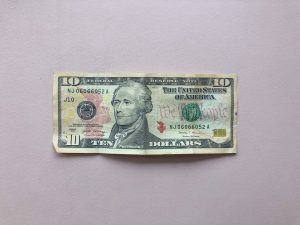Forex Trading in Nigeria: How to Get Started with a Broker
Forex trading has gained significant popularity over the years, and Nigeria is no exception. Many Nigerians are now venturing into the world of forex trading to diversify their investment portfolios and potentially earn substantial profits. However, before diving into the forex market, it is crucial to understand the basics and find a reliable broker to assist you in your trading journey. In this article, we will guide you on how to get started with a broker in Nigeria.
1. Understand the Forex Market:
Before choosing a broker, it is essential to have a solid understanding of the forex market. Forex, also known as foreign exchange, is the global marketplace for trading different currencies. It operates 24 hours a day, five days a week, allowing traders to speculate on the price movements of various currency pairs. Familiarize yourself with basic forex terminologies, such as pips, lots, leverage, and margin, as these are fundamental concepts you will encounter while trading.
2. Choose a Reliable Broker:
Selecting a trustworthy broker is crucial to your success as a forex trader. In Nigeria, there are several forex brokers available, but not all of them are regulated or reliable. Look for brokers that are regulated by reputable financial authorities such as the Securities and Exchange Commission (SEC) or the Central Bank of Nigeria (CBN). Regulation ensures the broker follows strict guidelines, safeguarding your funds and ensuring fair trading practices.
Additionally, consider the broker’s trading platform. A user-friendly platform with advanced tools and features will enhance your trading experience. Look for platforms that offer real-time charts, technical analysis tools, and risk management features. It is also beneficial to choose a broker that provides a mobile trading app, allowing you to monitor and trade the market on the go.
3. Consider Account Types and Trading Conditions:
Different brokers offer various account types to cater to traders with different needs and experience levels. Common account types include standard accounts, mini accounts, and Islamic accounts. Standard accounts require a higher minimum deposit and offer lower spreads, while mini accounts require a smaller deposit but may have higher spreads. Islamic accounts are designed for traders who adhere to Sharia law, with no swap or interest charges.
In addition to account types, consider the trading conditions offered by the broker. Look for brokers that offer competitive spreads, low commissions, and fast execution speeds. These factors can significantly impact your trading profitability. It is also essential to check if the broker offers a demo account, allowing you to practice trading with virtual funds before risking your real money.
4. Evaluate Customer Support:
Reliable customer support is vital when it comes to forex trading. As a trader, you may encounter technical issues or have questions that need immediate assistance. Choose a broker that offers responsive customer support through various channels such as live chat, email, or phone. Test their customer support by reaching out with inquiries before opening an account to gauge their responsiveness and helpfulness.
5. Analyze Educational Resources:
Forex trading can be complex, especially for beginners. Look for brokers that provide comprehensive educational resources to help you learn and improve your trading skills. These resources may include tutorial videos, webinars, eBooks, and market analysis. A broker that invests in educating its clients demonstrates its commitment to their success.
6. Open an Account and Start Trading:
Once you have chosen a broker that meets your requirements, it is time to open a trading account. The account opening process typically involves filling out an online application form and providing the necessary identification documents. After your account is approved, you can fund it using various payment methods such as bank transfer, credit/debit cards, or e-wallets.
Before diving into live trading, it is recommended to start with a demo account. A demo account allows you to practice trading with virtual funds in real market conditions. It helps you understand the platform, test your trading strategies, and build confidence before risking your real money.
Once you feel comfortable with your trading skills, you can switch to a live account and start trading with real money. However, always remember to start with small trading volumes and use proper risk management techniques to protect your capital.
In conclusion, forex trading can be a lucrative venture for Nigerians looking to diversify their investments. However, it is crucial to choose a reliable broker that suits your trading needs. By understanding the forex market, selecting a regulated broker, considering account types and trading conditions, evaluating customer support, analyzing educational resources, and practicing with a demo account, you will be well on your way to getting started with a broker in Nigeria and embarking on your forex trading journey.






